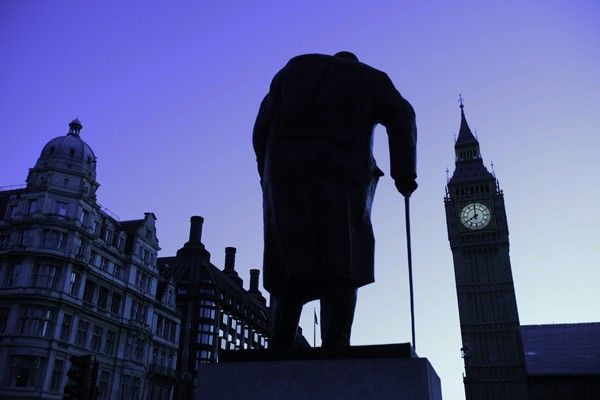Are Aliens Real? Winston Churchill Wrote Essay On Extraterrestrial Life

On the eve of World War II, Winston Churchill wasn't just worried about other countries, but other planets as well, a newly rediscovered essay by the former U.K. prime minister shows.
Churchill, who served as prime minister during World War II from 1940 to 1945 and again from 1951 to 1955, wrote an essay titled "Are We Alone In Space?" that was sent to a publisher just weeks after Britain entered World War II and Churchill was named first lord of the admiralty in 1939. The essay went through a few drafts, and was later given a new title, "Are We Alone In The Universe?" to reflect changing scientific understanding. It was recently rediscovered by Timothy Riley, director of the U.S. National Churchill Museum in Fulton, Missouri. Riley gave a copy to astrophysicist Mario Livio, who wrote about the essay on an article published Wednesday in Nature.
"The most amazing thing is that he started this essay when Europe was on the brink of war and there he is, musing about a question about a scientific topic that is really a question out of curiosity,” Livio said in an interview with the New York Times.
In the essay, Churchill laid out the case for life elsewhere in the universe. He discussed the vastness of the universe, the necessity of water in the creation of life, and what is today known as the "Goldilocks zone" -- the distance from a star in which planets can host liquid water.
He wrote with the mind of a scientist, Livio notes. Churchill was skeptical of many of his own assumptions (he notes that just because all life on Earth requires water doesn't mean that other forms of life aren't possible) and Livio writes that he was clearly familiar with the science of his time, including the work of Edwin Hubble.
“I, for one, am not so immensely impressed by the success we are making of our civilization here that I am prepared to think we are the only spot in this immense universe which contains living, thinking creatures, or that we are the highest type of mental and physical development which has ever appeared in the vast compass of space and time," he wrote.
Churchill was an accomplished writer. He was awarded the Nobel Prize for Literature in 1953 and completed his four-volume "History of the English Speaking Peoples" in 1958. He was also a champion of the sciences. In the 1930s, he wrote articles about the future of science and technology, including an article on the potential uses and threats of nuclear energy.
© Copyright IBTimes 2025. All rights reserved.





















